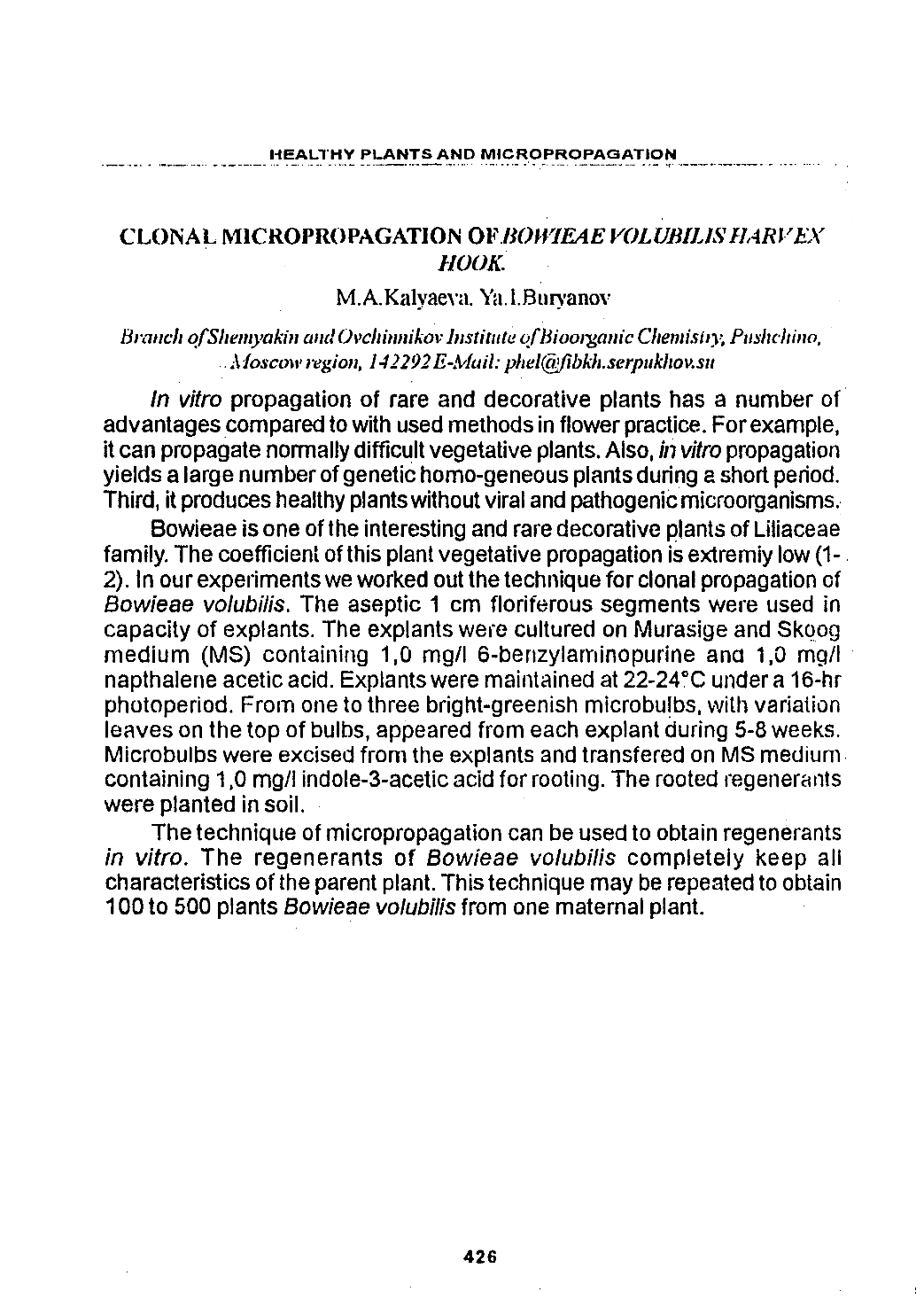

H E A L T H Y P L A N T S A N D M IC R O P R O P A G A TIO N
CLONAL MICROPROPAGATION OF
BOW IE A
VOLUBILIS HARVEX
HOOK
.
M.A.Kalyaeva. Ya. I.Buryanov
Branch ofShemyakin and Ovchinnikov Institute ofBioorganic Chemistry, Pushchino,
.Moscow region, 142292E-Mail:
phel@fibkh.serpukhov.suIn vitro
propagation of rare and decorative plants has a number of
advantages compared to with used methods in flower practice. For example,
it can propagate normally difficult vegetative plants. Also,
in vitro
propagation
yields a large number of genetic homo-geneous plants during a short period.
Third, it produces healthy plants without viral and pathogenic microorganisms.
Bowieae is one of the interesting and rare decorative plants of Liliaceae
family. The coefficient of this plant vegetative propagation is extremiy low (1-
2). In our experiments we worked out the technique fo r clonal propagation of
Bowiea volubilis.
The aseptic 1 cm floriferous segments were used in
capacity of explants. The explants were cultured on Murasige and Skoog
medium (MS) containing 1,0 mg/l 6 -benzylam inopurine and 1,0 mg/l
napthalene acetic acid. Explants were maintained at 22-24°C under a 16-hr
photoperiod. From one to three bright-greenish m icrobulbs, with variation
leaves on the top of bulbs, appeared from each explant during 5-8 weeks.
M icrobulbs were excised from the explants and transfered on MS medium
containing 1,0 mg/l indole-3-acetic acid fo r rooting. The rooted regenerants
were planted in soil.
The technique of micropropagation can be used to obtain regenerants
in v itro .
The regenerants o f
Bow iea volubilis
com p le te ly keep all
characteristics of the parent plant. This technique may be repeated to obtain
100 to 500 plants
Bowieae volubilis
from one maternal plant.
4 2 6
Научная электронная библиотека ЦНСХБ









